
views
Dealing with Your Emotions

Allow yourself to feel your emotions fully. Once you find out that this item has been thrown away, you will likely experience a whole range of emotions that may feel difficult to deal with. You may feel anger, sadness, frustration, or disappointment. Remember that it’s okay to cry. You have the right to feel the way that you do. You have lost something that was of great value to you that likely cannot be replaced. Take some time to yourself to grieve this loss, big or small.
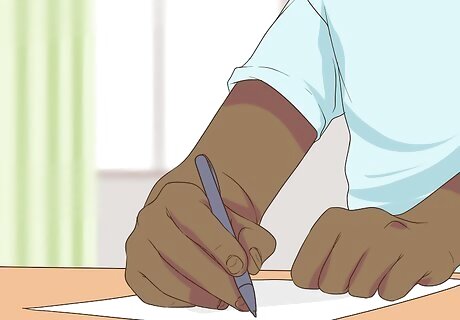
Journal out your thoughts. You can also work through your emotions by taking a few moments to write out your thoughts and feelings. Remember that though the item is gone, the memories attached to it are not. Write some of those memories out, as well. You might also want to try writing out the story of how you came to have this item and any information about it that you find important. Often times, it’s not necessarily the item that we are missing, but the memories or the people attached to it. Was this item something of your mother’s and you’re particularly upset because your mother passed away? Or perhaps this item is something from your childhood that you have always had. Write about the meaning of the item. Journaling about the lost item can be therapeutic for you and what you write may also evolve into a meaningful document that can serve as a placeholder for the lost item.
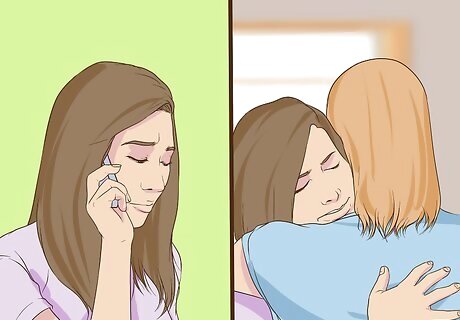
Call a friend or family member to vent. You may consider calling a friend to talk to them about it, as this will help you process your emotions and maybe solicit helpful advice. They may have undergone something similar in the past and be able to relate to you very well.
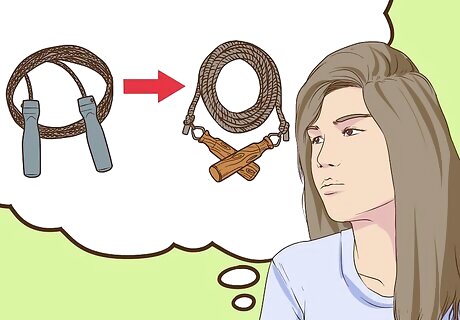
Consider all of the other items that you have. Though this item may certainly never be able to be replaced, perhaps you have something similar to it or from the same era of your life. Think about all of the other things that you have in your life, whether material or not, and reflect on the importance of these items or memories. Remember also that there are new memories to make and new sentimental items that you will accumulate over time. Also, keep in mind that even if the item has been lost, you will still have your memories of that item.

Remember that you are more than this item. Though you certainly did not want to part with this item, remember that this loss does not define you, your experiences, or your memories. You will still have your memories of the person or the time that that item was associated with forever and you will also make new memories.
Confronting the Person
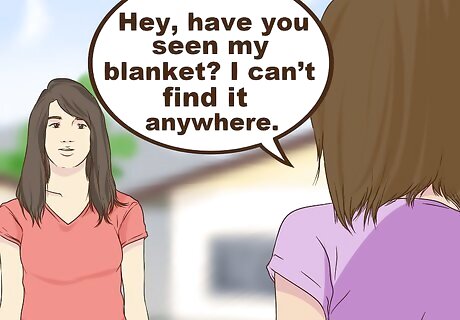
Find out who threw it away. After you have properly taken some time to really reflect on this loss, you may want to move forward with confronting the person who threw away the item. Be sure that you are emotionally ready to do this first. Give yourself plenty of time to process your emotions and do not attempt to confront someone about it when your emotions are still running high. If you are not sure who threw it away, begin asking your family members questions about who last saw the item and who threw it away. If you share a room with your sibling, you might ask them “Hey, have you seen my blanket? I can’t find it anywhere.” If your sibling tells you they are the one who threw it away, don’t react negatively or dramatically. Take some time to step away and calm down.
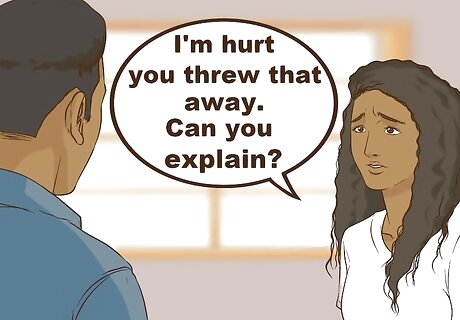
Choose your words carefully. Before you confront this person about throwing away your item, you should think very carefully about what you want to say to them. You may want to understand why they have thrown your things away and express your feelings about what they have done. Keep in mind that the person may not have intended to hurt you by doing this. Therefore, it is best to avoid leading into the conversation by expressing your hurt feelings. You might considering saying something like "I am unable to locate my ring. Did you by chance throw it away or donate it by accident?" After they answer, then you can say something like, "That ring was of strong sentimental value to me. Did you perhaps not know how much meaning it had for me? I am deeply saddened that it is gone. Please come to me next time, and ask me personally if there is anything you plan to throw out or give away."
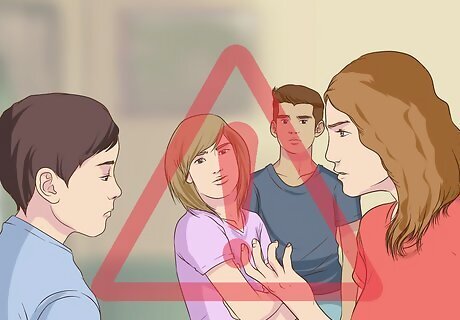
Set the stage. When you finally do take the time to confront them about this issue, don’t do it in public or in front of other people. Pull them to the side and begin having a conversation calmly and respectfully. They are more likely to engage with you and be honest if they don’t feel attacked or put on guard in front of others.

Find out why they threw it away. After you have begun talking to them and if they have admitted to throwing away the item, you will likely want to understand why they threw it away in the first place. Take some time to ask them why they have done this to you. You may find that it was an honest mistake and if so, it will be easier for you to forgive them. However, if their intentions were bad, it may take more time to forgive. If your parents threw the item away, be sure to be very respectful to them as you would also want to be with anyone else. Though you may be upset, it is important to maintain a respectful attitude.
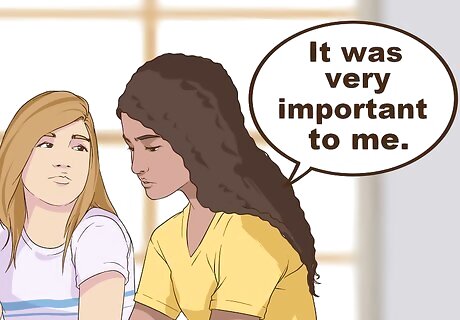
Explain the significance. After you understand why they threw away the item, take some time to express the importance of that item to you. Perhaps they did not understand its significance to you or perhaps it got lost in a pile and they accidentally threw it away. Either way, they should understand the hurt that they have caused you. However, after you have expressed this, be sure to move on. You might say “You know, mom gave me that ring. It was grandma’s, and she gave it to mom before she passed. It was very important to me because I was close to grandma and it was my own way of connecting to her.” Take some time to share with them how you got the item and why you will miss it, if you feel that the story will help.
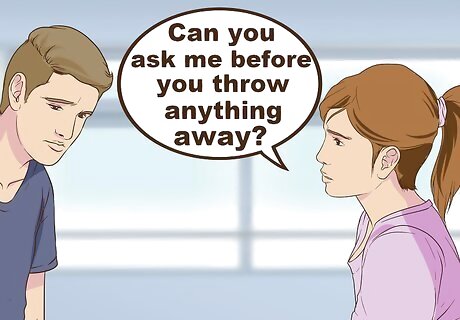
Request that the person who threw your items away ask you next time. Your things should never be thrown away without your permission. In order to prevent this hurt from happening to you again, you should also have a conversation with them about boundaries. This will help you reestablish trust with them and move forward from this issue. You might say something like "It will help me to move on if you can promise to me that you won't throw any of my stuff away again. Please respect my wishes. If there is anything that may be mine that you are considering throwing or giving away, please come to me first and ask me."
Moving Forward
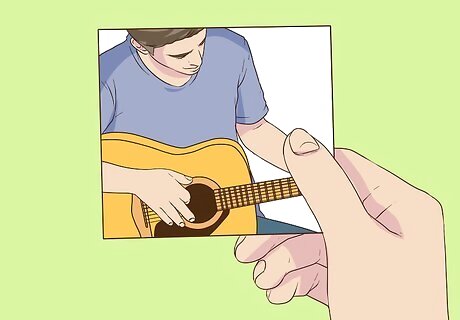
See if you can find a picture of the item. Though you may no longer have the item in question, perhaps you have a picture of it to help remind you of it and the memories it holds. Sometimes, as time goes by, we might forget the way something looked or felt, but by having a picture, you can more easily evoke those memories. Look through your old albums to see if you can find a picture of the item or of you with it.

See if you can get the item back. Though the item may be thrown away, it may not be lost forever. If this item is of extreme importance to you, is irreplaceable, or is a family heirloom, it may be worth it to attempt to retrieve the item. If it was thrown in the trash recently, you can likely still find it in the trash. If the items were donated, see if you can find out where and go try to get it back.

Find things that remind you of the item. Look through the things you have and see if you have things similar to it that you can hold close to your heart despite this loss. If possible, see if you can replace the item by buying a new one.
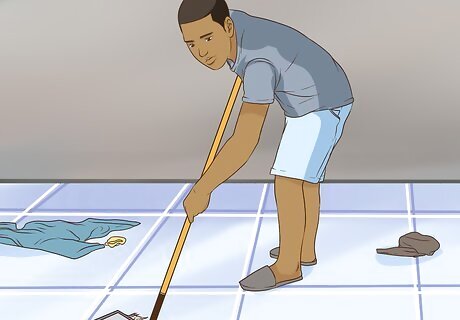
Keep a clean space. Though it may not be your fault at all that this item was thrown away, you can still work to keep your room and house clean in order to potentially avoid this happening in the future. For instance, if your item was thrown away because it was in a pile of trash, then that may indicate that you are not keeping your room as clean as you could keep it, and that its uncleanliness is threatening your happiness. Clean up each day and you will be able to keep your space neat. Keep everything in its designated space.
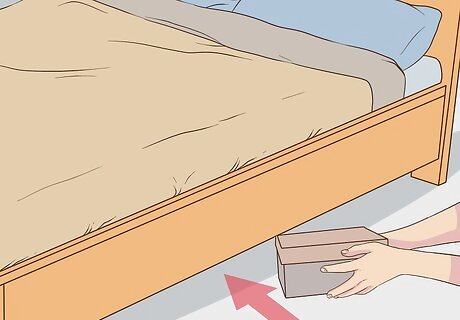
Keep sentimental items hidden or tucked away. In the future, it will be helpful for you to keep these items that are significant to you either locked up somewhere or hidden in a safe place. This will prevent your other heirlooms from being thrown away and will give you greater peace of mind. Consider keeping it in the top of your closet or under your bed in a box. You might also want to purchase or find a nice box to put all of your other heirlooms in.

Forgive the person who threw it away. In order to move forward fully, work to forgive the person who has hurt you by throwing the item away. Whether they did it accidentally or intentionally, remember that relationships are typically more important than an item. Remember that forgiveness is more for you than the other person. Holding onto bitterness for them will only hurt you in the end. If they have ever forgiven you for something, reflect on these times, as well. This will help you to move forward.















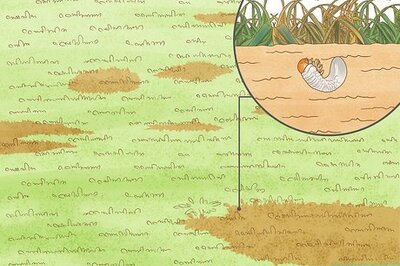



Comments
0 comment